According to the revised exam calendar released by the Staff Selection Commission, the official SSC MTS Notification will be released on 27th June 2024 and the Computer Based Examination will be held in October – November 2024. The questions in the General Awareness section will be asked in the 2nd session of the exam. One of the most important subjects that accounts for a significant number of questions is Indian Polity.
The subject of Indian Polity covers a wide range of topics such as the Indian Constitution, Fundamental Rights & Duties, DPSP, Indian Legislature & Judiciary, Panchayati Raj, Important Institutions, Acts, Amendments, etc. To help the candidates in their preparation process for the Indian Polity subject of the General Awareness section of the SSC CPO Exam 2024, we have provided a well-curated selection of questions along with answers and explanations in this article.
Q1. In which part of the Constitution are fundamental duties added?
(a) Part III-B
(b) Part II-B
(c) Part I-A
(d) Part IV-A
Q2. Read the given statements and select the correct option.
i) The Governor is the real head of the State Government.
ii) The Chief Minister plays a key role in framing the laws and policies of the state government.
iii) The President appoints the governor of a State.
(a) Both i and ii
(b) Only ii
(c) Both ii and iii
(d) Only i
Q3. Who is the ex-officio Chairman of the Rajya Sabha?
(a) Vice President
(b) Prime Minister
(c) President
(d) Attorney General of India
Q4. How many fundamental rights were provided originally by the Indian Constitution in 1950?
(a) Seven
(b) Six
(c) Nine
(d) Five
Q5. Who among the following did Congress form the Vice President of the Interim Government in 1946?
(a) Vallabhbhai Patel
(b) Baldev Singh
(c) John Matthai
(d) Jawaharlal Nehru
Q6. How many fundamental rights were there at the time of the adoption of the Indian Constitution?
(a) Seven
(b) Five
(c) Six
(d) Eight
Q7. In which of the following cases the Supreme Court, while laying out the ‘basic structure’ of the Constitution held that the democratic character of the polity was an essential component of the ‘basic structure’?
(a) Sajjan Singh vs State of Rajasthan
(b) Kesavananda Bharati vs State of Kerala
(c) Romesh Thappar vs State of Madras
(d) A K Gopalan vs State of Madras
Q8. ________ 2005 is referred to as the ‘Right to Work’ as it guaranteed 100 days of employment in a year by the Indian Government to people who need and who can do work.
(a) Mahatma Gandhi Regional Employment Guarantee Act
(b) Mahatma Gandhi Rural Employment Act
(c) Mahatma Gandhi National Rural Employment Guarantee Act
(d) Mohan Gandhi Regional Guarantee Act
Q9. How many Members of Parliament were elected from Punjab to the 17th Lok Sabha?
(a) 14
(b) 15
(c) 13
(d) 17
Q10. Which of the following statements is NOT correct about fundamental duties in the
Indian Constitution?
(a) They are made to value and preserve the rich heritage of our composite culture.
(b) They are made to cherish and follow the noble ideals which inspired our national
struggle for freedom.
(c) They are made to develop the scientific temper, humanism and the spirit of inquiry and
reform.
(d) They are made justiciable.
Q11. Under which of the following Acts was the National Commission for Women
established?
(a) The National Commission for Women Act, 1989
(b) The National Commission for Women Act, 1987
(c) The National Commission for Women Act, 1990
(d) The National Commission for Women Act, 1988
Q12. Who among the following has given extraordinary powers during an emergency?
(a) Prime Minister
(b) The Chief Justice
(c) The President
(d) The Governor
Q13. Which part of the Indian Constitution deals with fundamental rights?
(a) Part III
(b) Part II
(c) Part V
(d) Part IV
Q14. From which country has the concept of Martial Law, which restricts Fundamental
rights, borrowed?
(a) The UK
(b) The USSR
(c) China
(d) Japan
Q15. Which of the following has been INCORRECTLY listed as a condition for becoming a citizen of India?
(a) Citizenship by birth
(b) Citizenship by naturalization
(c) Citizenship through acquisition of property
(d) Citizenship by descent
Q16. Which writ is issued when the court finds that there is unlawful arrest of a person?
(a) Prohibition
(b) Mandamus
(c) Quo warranto
(d) Habeas corpus
Q17. The fundamental duties were added to the Indian Constitution on the recommendation of the:
(a) Balwant Rai Mehta Committee
(b) Bibek Debroy Committee
(c) LM Singhvi Committee
(d) Sardar Swaran Singh Committee
Q18. Which of the following Articles of the Indian Constitution deals with the relationship between the Prime Minister and the President?
(a) Article 45
(b) Article 25
(c) Article 35
(d) Article 75
Q19. A Governor shall, notwithstanding the expiration of his term, continue to hold office until ______________.
(a) the President’s consent
(b) the Legislative Secretary takes charge
(c) his/her successor enters his/her office
(d) he/she has the aid and advice of the Chief Minister
Q20. Who takes the salute during the Republic Day parade at New Delhi?
(a) Governor
(b) President
(c) Chief Justice
(d) Prime Minister
Q21. Which Article of the Indian Constitution mentions that all the authorities— civil and Judicial— In the territory of India shall act in aid of the Supreme Court?
(a) Article 143
(b) Article 144
(c) Article 142
(d) Article 141
Q22. Which Articles of the Indian Constitution describe Fundamental Rights?
(a) Articles 51 to 11
(b) Articles 12 to 35
(c) Articles 36 to 51
(d) Articles 52 to 62
Q23. Which of the following rights forbids the employment of children below the age of 14 years in dangerous jobs?
(a) Right to Equality
(b) Right to Constitutional Remedies
(c) Right against Exploitation
(d) Right to Freedom
Q24. Which of the following Articles of the Constitution of India lays down the establishment of Public Service Commissions for the Union and the States?
(a) Article 315
(b) Article 316
(c) Article 317
(d) Article 318
Q25. What is the bicameral legislature of the Indian Constitution?
(a) It is a legislative body with three houses.
(b) It is a legislative body with two houses.
(c) It is a legislative body with one house.
(d) It is a legislative body with four houses.
Q26. Which Article of the Indian Constitution refers to the Rights of Ministers concerning the State Legislature?
(a) Article 178
(b) Article 177
(c) Article 175
(d) Article 176
Q27. Which of the following is responsible for attending to disputes concerning recruitment and conditions of service of public personnel at the center?
(a) Joint Administrative Tribunal
(b) The Settlement and Appellate Tribunal
(c) The Competition Appellate Tribunal
(d) Central Administrative Tribunal
S1.Ans.(d)
Sol. Article 51 ‘A’, contained in Part IV A of the Constitution deals with Fundamental Duties. These were incorporated in Part IV-A of the Constitution by the 42nd Constitutional Amendment Act, 1976 on the recommendations of the Swaran Singh Committee. Originally 10 in number, one more duty was added through the 86th Constitutional Amendment Act, of 2002.
The Fundamental Duties of Indian Citizens were added to the Constitution of India by the 42nd Amendment Act of 1976.
These duties are enshrined in Part IVA of the Constitution, which was newly inserted by the 42nd Amendment.
The 11 Fundamental Duties are outlined in Article 51A of the Constitution.
S2.Ans.(c)
Sol. The statement “The Governor is the real head of the State Government” is not entirely correct.
While the Governor is the nominal head of the state government, the Chief Minister is the real head of the executive branch. This means that the Chief Minister is responsible for the day-to-day administration of the state government. The Governor, on the other hand, has more ceremonial and symbolic duties.
The Governor’s powers are limited by the Constitution of India. The Governor cannot act independently of the advice of the Chief Minister and the Council of Ministers.
Yes, the statement “The Chief Minister plays a key role in framing the laws and policies of the state government” is correct.
The Chief Minister is the head of the state government and leads the Council of Ministers, which is responsible for formulating and implementing state policies. The Chief Minister also has the power to introduce bills in the state legislature, which are the laws that govern the state.
The statement is correct. The President of India appoints the governor of a state in India.
S3.Ans.(a)
Sol. The Vice President of India is the ‘ex-officio’ Chairman of the Rajya Sabha. This means that by his position as Vice President, he automatically becomes the Chairman of the Upper House and presides over its sessions.
S4.Ans.(a)
Sol. Seven fundamental rights were originally provided by the Constitution –Page 2 includes the property right. However, the property right was removed from Part III of the Constitution by the 44th Amendment in 1978. The Right to Equality is one of the chief guarantees of the Constitution.
S5. Ans.(d)
Sol. Pundit Jawaharlal Nehru became its Vice President and served as the de facto Prime Minister.
Jawaharlal Nehru served as the vice president of the first interim govt of India. The Interim Government of India was formed on 2 September 1946.
The interim Government was headed by Jawahar Lal Nehru. The Constituent Assembly began its session on 9th December 1946 AD. Dr. Rajendra Prasad was elected its President.
S6.Ans.(a)
Sol. Seven main fundamental rights were originally provided by the Constitution – the right to equality, right to freedom, right against exploitation, right to freedom of religion, cultural and educational rights, right to property and right to constitutional remedies.
S7.Ans.(b)
Sol. Kesavananda Bharati case (1973)
The SC held that although no part of the Constitution, including Fundamental Rights, was beyond the Parliament’s amending power, the “basic structure of the Constitution could not be abrogated even by a constitutional amendment.”
The Supreme Court held that the democratic character of the polity was an essential component of the ‘basic structure’ of the Constitution in the landmark case of Kesavananda Bharati v. State of Kerala. This case decided in 1973, established the basic structure doctrine, which limits the power of Parliament to amend the Constitution. The Court held that certain fundamental features of the Constitution, including the democratic character of the polity, cannot be altered or destroyed by amendments. This doctrine has been upheld in subsequent cases and has played a crucial role in safeguarding the fundamental principles of the Indian Constitution.
S8.Ans.(c)
Sol. Mahatma Gandhi National Rural Employment Guarantee Act (MGNREGA), 2005 offers 100 days of guaranteed employment in a year to the people in rural areas who can and require work. It is also referred to as the Right to Work.
The Government of India passed the Mahatma Gandhi National Rural Employment Guarantee Act, 2005 in September 2005. The Act gives a legal guarantee of a hundred days of wage employment in a financial year to adult members of a rural household who demand employment and are willing to do unskilled manual work.
S9.Ans.(c)
Sol. There are a total of 20 members of Parliament from Punjab: 13 in Lok Sabha and 7 in Rajya Sabha.
S10.Ans.(d)
Sol. The fundamental duty of the citizen, according to the Indian Constitution, is to value and preserve the rich heritage of our culture. It is very important to do so because India has a great history of rulers and is bestowed with different art and architecture, which shows the past glory of the country.
Article 51 – A (b) “To cherish and follow the noble ideals which inspired our national struggle for freedom”; which is a part of fundamental duties.
Article 51A of the Constitution of India cites that every citizen of India must develop a scientific temper, humanism, and the spirit of inquiry and reform.
The scientific temper, as well as the spirit of inquiry, are focused on eliminating barriers, preconceived beliefs of history, and including putting everything to the test of logic as well as reason rather than believing the said theory based solely on the fact that it is said by or with authorities or power.
Fundamental Duties are non-justiciable i.e. they can’t be taken to court of law if they are not followed. They lack legal sanction & direct enforcement.
S11.Ans.(c)
Sol. The National Commission for Women was set up as a statutory body in January 1992 under the National Commission for Women Act, 1990 (Act No. 20 of 1990 of Govt.
The objective of the NCW is to represent the rights of women in India and to provide a voice for their issues and concerns. The subjects of their campaigns have included dowry, politics, religion, equal representation for women in jobs, and the exploitation of women for labor
S12.Ans.(c)
Sol. The Constitution confers extraordinary powers on the President to deal with the following three types of emergencies: National Emergency (Article 352) President’s Rule (Article 356 and 365) Financial Emergency (Article 360).
The “emergency powers” have been provided to the “President of India” where any type of threat is provided to the securities of the county. The harm that will be given to the Indian states then the president will be imposing the emergency in the Indian constitution.
S13.Ans.(a)
Sol. Fundamental Rights – Articles 12-35 (Part III of Indian Constitution) Articles 12-35 of the Indian Constitution deal with Fundamental Rights. These human rights are conferred upon the citizens of India and the Constitution tells that these rights are inviolable.
S14. Ans.(a)
Sol. The concept of martial law in India, which restricts fundamental rights, has been borrowed from the English common law(UK). This concept has been incorporated into the Indian Constitution under Article 34, which allows for the suspension of fundamental rights during times of war, external aggression, or armed rebellion.
While the concept itself originates from English common law, the specific provisions of martial law in India have been adapted to the country’s unique circumstances and constitutional framework.
S15. Ans.(c)
Sol. citizenship through the acquisition of property in India is not possible. Indian citizenship can be acquired by birth, descent, registration, and naturalization. Owning property in India does not grant a person automatic citizenship.
Acquiring Property is not a condition for becoming a citizen of India. People born in India on/after January 26, 1950, and before July 1, 1987, are Indian citizens irrespective of their parents’ nationality.
There are five primary methods of acquiring citizenship in India, including birth, registration, descent, naturalization, and incorporation of territory, each with its own set of provisions and procedures
S16. Ans.(d)
Sol. The writ of habeas corpus is issued when the court finds that there is an unlawful arrest of a person. This writ is a fundamental right guaranteed by the Constitution, and it protects individuals from arbitrary detention or imprisonment.
If a person is arrested without a warrant or probable cause, or if they are held in custody for an unreasonable length of time, they may be entitled to a writ of habeas corpus. The writ will require the person’s detainer to produce the person before the court and justify the detention. If the court finds that the detention is unlawful, it will order the person’s release
S17. Ans.(d)
Sol. Through the 42nd Constitutional Amendment in 1976, a total of ten fundamental duties were listed down in the Constitution. They were based on the recommendations of the Swaran Singh Committee.
S18. Ans.(d)
Sol. In the constitution of India, the prime minister is mentioned in only four of its articles (articles 74, 75, 78 and 366).
There are a few articles in the Indian Constitution that deal with the relationship both the Prime Minister and the President share with each other. The articles are Article 74. Article 75.
Article 75: Empowers the President to appoint the Prime Minister and other ministers based on the Prime Minister’s advice. This highlights the President’s formal authority in appointing the executive leadership.
Article 78: Defines the Prime Minister’s responsibility to keep the President informed about government decisions and proposals, and to furnish any information the President may require. This emphasizes the Prime Minister’s duty to keep the President updated.
Therefore, while the President holds the ultimate power to appoint and dismiss the Prime Minister, the Prime Minister acts as the chief advisor and keeps the President informed, establishing a collaborative and informative relationship.
S19. Ans.(c)
Sol. Article 156, Constitution of India 1950
Provided that a Governor shall, notwithstanding the expiration of his term, continue to hold office until his successor enters upon his office.
S20. Ans.(b)
Sol. The President of India who is the Commander-in-Chief of the Indian Armed Forces, takes the salute. Twelve contingents of various para-military forces of India and other civil forces also take part in this parade.
S21. Ans.(b)
Sol. Article 144, Constitution of India 1950
All authorities, civil and judicial, in the territory of India, shall act in aid of the Supreme Court.
S22. Ans.(b)
Sol. Articles 12 to 35 contained in Part III of the Constitution deal with Fundamental Rights.
These articles guarantee essential civil liberties to all Indian citizens, such as:
Right to equality: This includes equality before the law, prohibition of discrimination based on religion, race, caste, sex, or place of birth, and equal access to public places. (Articles 14-18)
Right to freedom: This includes freedom of speech and expression, assembly, association, movement, and residence, as well as the right to practice any profession or occupation. (Articles 19-22)
Right against exploitation: This prohibits forced labor, child labor, and human trafficking. (Articles 23-24)
Right to freedom of religion: This guarantees freedom of conscience and the right to profess, practice, and propagate any religion. (Article 25)
Cultural and educational rights: This includes the right to conserve distinct language, script, and culture, and the right to education. (Articles 29-30)
Right to constitutional remedies: This guarantees the right to enforce fundamental rights through the courts. (Article 32)
It is important to note that these rights are not absolute and can be subject to reasonable restrictions in the interest of public order, morality, and national security.
S23. Ans.(c)
Sol. The right that forbids the employment of children below the age of 14 years in dangerous jobs is the Right against Exploitation. This is enshrined in Article 24 of the Indian Constitution, which states: “No child below the age of fourteen years shall be employed to work in any factory or mine or engaged in any other hazardous employment.”
This means that any form of employment for children under 14 that involves hazardous activities or workplaces is illegal and punishable by law. The specific list of hazardous occupations and processes is defined by the Child Labour (Prohibition and Regulation) Act, of 1986.
S24. Ans.(a)
Sol. Article 315 of the Indian Constitution lays down the establishment of Public Service Commissions for the Union and the States.
It stated that Union and State Public Service Commissions would be constituted. Two or more States could have one common Public Service Commission. Further, on receiving a request from the Governor of a State, the Union Public Service Commission could also address the needs of a particular State.
Articles 315 to 323 in Part XIV of the Constitution of India provide for the establishment of a Public Service Commission for the Union and a Public Service Commission for each State. Each state has its own Public Service Commission with functions similar to the Union Public Service Commission.
S25. Ans.(b)
Sol. A bicameral legislature is a legislature with two houses. The Indian Parliament consists of two houses- Lok Sabha and Rajya Sabha. Few states in India also have bicameral legislature consisting of Vidhan Sabha and Vidhan Parishad, while others have a single house, i.e. Vidhan Sabha.
S26. Ans.(b)
Sol. The Article of the Indian Constitution that refers to the Rights of Ministers for the State Legislature is Article 177. This article outlines the specific privileges granted to Ministers and the Advocate-General, allowing them to:
Speak and otherwise take part in the proceedings of both Houses of the Legislature: This includes the right to introduce bills, move amendments, participate in debates, and ask questions.
Vote in the House of which they are members: Ministers who are members of the Legislative Assembly can cast their vote during voting procedures.
Draw allowances: Ministers are entitled to receive monetary compensation for their services.
Enjoy freedom from arrest: Ministers cannot be arrested for civil cases while attending the sittings of the House or while going to or returning from such sittings.
It’s important to note that Article 177 deals with the rights of Ministers and the Advocate-General at the state level, not the national level. For information on the rights of Ministers at the national level, refer to Articles 86 and 87 of the Constitution.
S27. Ans.(d)
Sol. The Central Administrative Tribunal (CAT) is responsible for attending to disputes concerning recruitment and conditions of service of public personnel at the center.
The Government of India established it in 1985 as per the Central Administrative Tribunals Act. The CAT has its headquarters in New Delhi and has benches in various other cities across the country. The CAT is led by a Chairman, who is a retired judge from the Supreme Court or a High Court.
Administrative Tribunals was set up by an act of Parliament, the Administrative Tribunals Act, 1985. It owes its origin to Article 323 A of the Constitution.

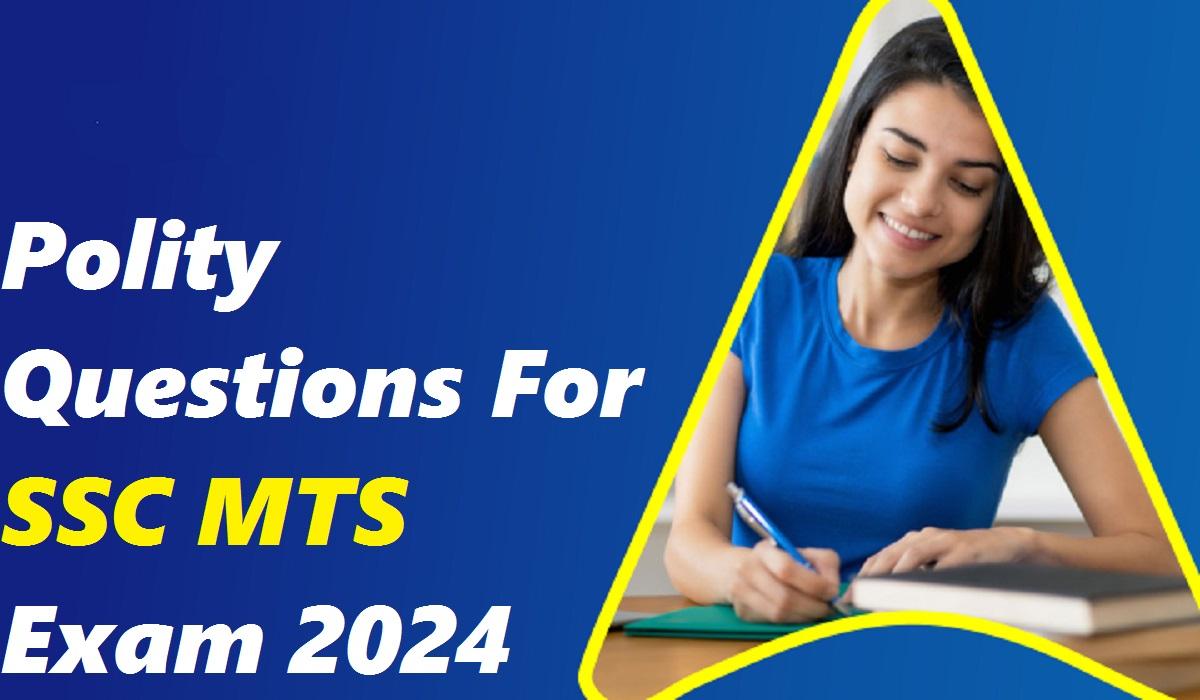


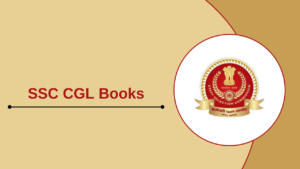 SSC CGL Books, Subject-Wise Complete Boo...
SSC CGL Books, Subject-Wise Complete Boo...
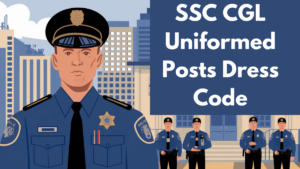 SSC CGL Uniformed Posts Dress Code
SSC CGL Uniformed Posts Dress Code
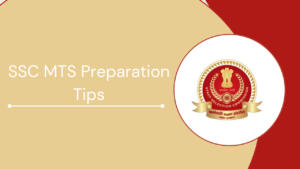 SSC MTS Preparation Tips 2025, Subject W...
SSC MTS Preparation Tips 2025, Subject W...


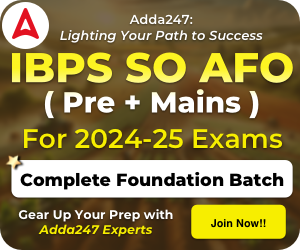
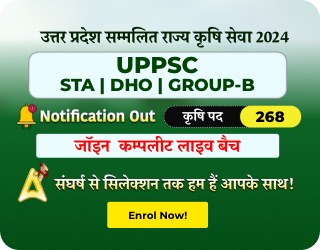
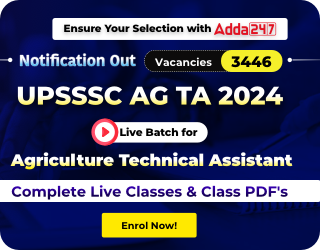
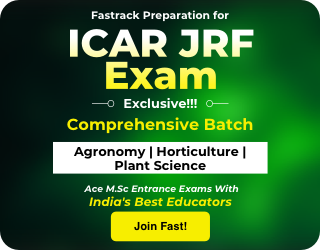


 Adda247 Job portal has complete information about all Sarkari Jobs and Naukri Alerts, its latest recruitment notifications, from all state and national level jobs and their updates.
Adda247 Job portal has complete information about all Sarkari Jobs and Naukri Alerts, its latest recruitment notifications, from all state and national level jobs and their updates.